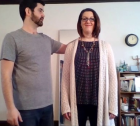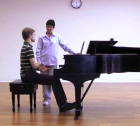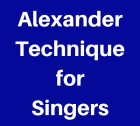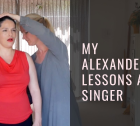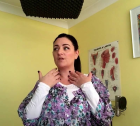Benefits and Research
The Alexander Technique attracts individuals wanting to improve mobility, ease postural discomfort, reduce chronic pain, and manage stress, while others seek lessons to advance their skills in the performing arts and athletic endeavours. Browse the menu lists below to learn more about how Alexander Technique can benefit you.
Use of resources
Please note that the content within the Research & Resources and Videos sections is provided only for general information purposes.
Use of Resources
Please note that the content within the Research & Resources is provided only for general information purposes. Many of the resources, such as books, are not free. Links to other websites or platforms are provided for viewers’ convenience, but ATC does not control or monitor them and accordingly cannot endorse their information or guarantee its accuracy and relevance. The use of content or links to third-party websites is at the viewers’ own risk. Viewers should contact an ATC-certified Alexander Technique teacher with any questions about the application of Alexander Technique to their specific issues.
Voice
- Benefits
- Resources
- Videos
- Testimonials
Given that the body is the instrument for singers, it is particularly important for them to recognize their physical habits when singing because it directly impacts their voice. Thus, heightened awareness of how they use their bodies, gained through Alexander Technique lessons, is extremely beneficial to diminishing vocal strain.
While singers appreciate that their voice can be impacted by what they do with their bodies, some may not know the degree to which the voice is affected when bodies are functionally not integrated.
Some singers may have a misconception about the effort required to sing and unconsciously develop habits that end up restricting their vocal range and power. Their good intentions can unknowingly translate into tightening their chest, neck, throat, and jaw. They may pull their heads back and into their spines, which can result in an overuse of the laryngeal muscles and a lack of appropriate breath energy or pressure. Their upper bodies can end up holding unnecessary tension and be separated energetically from their lower bodies. This increased tension can hinder resonance and tone quality of the voice.
Have you ever noticed that sometimes singers (as well as television broadcasters and actors) take an audible inhale between phrases and sentences? It is possibly a result of singers unintentionally compressing their neck and bodies as they employ a whole range of creative adjustments to reach pitches on the outskirts of their range. For example, they may try to reach lower notes by tucking in the chin or arching their backs trying to reach the high notes, as if to physically mimic the range of the notes. When singers want to take a full breath and feel like they are opening their chest expansively, they may not realize that they can pull their head and neck back.
Alexander Technique can help the singer to build awareness of the breathing mechanism in relation to the whole body and to become aware of how compression of the spine can lead to constriction of the entire breathing mechanism. Using Alexander Technique helps to support the breath by preventing constriction of the accessory breathing musculature, allowing maximum movement of the ribcage with healthy diaphragmatic action.
The Technique also significantly improves posture and lets singers use their legs and the ground to properly support themselves so that their upper torso and shoulders do not have to do so much work.
As they learn to avoid interfering habits, and gain poise and control of their breath in a new and fully functional way, singers find power with much less effort. Often the range of a singer can be extended, the breath capacity increased, and the voice become richer and warmer in tone. Alexander Technique helps singers to find joy in the effortless flow and freedom of their voice. (Written in consultation with Alison Taylor.)
When you stop doing the wrong thing, the right thing does itself.
– F.M. Alexander
General Articles
I was introduced to the Alexander Technique . . . over two years of private lessons at McGill. AT has become, for me, not only a method for achieving ideal body use, but also a mode of thought that plays an invaluable part in my performing, teaching and learning. Alexander Technique’s contribution to my development as a musician and a human being is incalculable. Don’t want to sound like I’m overselling it, but it’s the truth!
– Eric Braley


